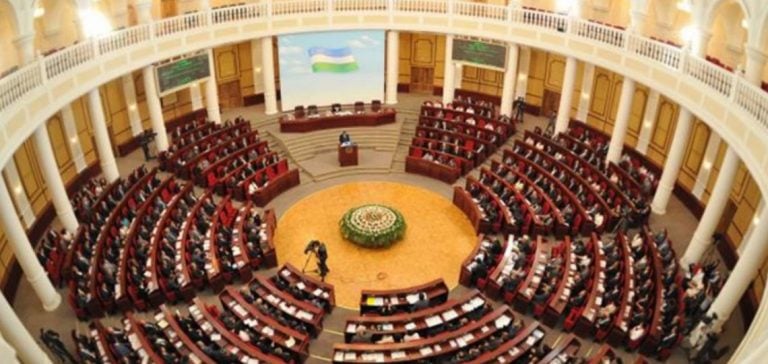Uzbekistan is strengthening its energy infrastructure by investing $1.3 billion in waste-to-energy (WtE) projects. This initiative is part of a broader strategy aimed at diversifying the country’s energy sources and improving solid waste management. By collaborating with international companies, the Uzbek government seeks to modernize its energy sector while addressing environmental challenges related to waste accumulation.
The waste-to-energy projects will process around 4.7 million metric tons of solid waste annually. This operation is expected to generate 2.1 billion kilowatt-hours (kWh) of electricity by 2027. While this production represents a modest portion of Uzbekistan’s total annual energy production, which currently exceeds 70 billion kWh, it marks a significant step towards diversifying energy sources and improving waste management.
Partnerships with International Companies
To execute these projects, Uzbekistan is partnering with several renowned international companies. These include China CAMC Engineering Co. Ltd, a Chinese firm specializing in global infrastructure and energy projects; Shanghai SUS Environment, a Chinese company focusing on waste management and energy conversion; Tadweer Group from the United Arab Emirates, known for its recycling and waste processing expertise; and Sejin Heavy Industries from South Korea, which focuses on environmental technologies and waste-to-energy projects.
Environmental and Energy Impact
These waste-to-energy projects play a crucial role in Uzbekistan’s energy transition. By converting waste into electricity, the country aims to reduce its dependence on traditional fossil fuels and make strides in waste management. This approach contributes to building a more sustainable and autonomous energy system while reducing the environmental impact associated with landfills.
The establishment of these waste-to-energy plants will not only reduce landfill use but also generate electricity from materials that would otherwise be considered waste. This is especially important in the context of rapid urbanization and population growth in Uzbekistan, where pressure on waste management systems is increasing.
Strategic and Economic Importance
From the perspective of energy security and diversification, these projects represent a significant advancement for Uzbekistan. The country, traditionally reliant on natural gas for its energy production, recognizes the need to diversify its energy sources for both security and sustainability reasons. The integration of waste-to-energy facilities contributes to this diversification by providing a complementary renewable energy source.
Additionally, effective waste management through these projects reduces the reliance on energy imports and fossil fuels. The annual production of 2.1 billion kWh from waste will provide a stable flow of electricity to complement other renewable energy projects such as solar and wind.
Waste Management Solution
Rapid urbanization and population growth have led to a significant increase in the volume of solid waste in Uzbekistan’s cities, particularly in the capital, Tashkent. The lack of modern waste management infrastructure has resulted in problematic waste accumulation in landfills, posing environmental and public health risks. The waste-to-energy facilities will provide a much-needed solution by converting large volumes of waste into electricity.
With a capacity to process 4.7 million metric tons of waste annually, these plants will play a critical role in reducing landfill use, improving waste management practices, and minimizing environmental impacts such as air and water pollution.
International Cooperation and Investment
The involvement of major international players such as China CAMC Engineering, Shanghai SUS Environment, Tadweer Group, and Sejin Heavy Industries highlights Uzbekistan’s openness to foreign investment and its commitment to working with global partners to achieve its energy and environmental goals. This international cooperation also reflects the growing global interest in Central Asia’s renewable energy sector, where countries like Uzbekistan offer new opportunities for clean energy project investments.
Economic Benefits
Beyond the environmental and energy benefits, the waste-to-energy projects are expected to have a positive economic impact. The construction and operation of these plants will create jobs in Uzbekistan, both during the construction phase and in the long-term operation of the facilities. Furthermore, generating electricity from waste could potentially reduce the country’s energy costs and lessen the need for expensive energy imports.
This $1.3 billion investment is part of a larger trend of increasing foreign direct investment (FDI) in Uzbekistan’s infrastructure and energy sectors. By improving waste management and increasing renewable energy capacity, Uzbekistan will not only boost its economy but also enhance its appeal as a destination for future clean energy investments.
Environmental and Policy Implications
Waste-to-energy projects contribute to climate change mitigation by reducing methane emissions from landfills, which are a significant source of greenhouse gases. Converting waste into energy also reduces reliance on fossil fuels for electricity generation, further lowering the carbon footprint of Uzbekistan’s energy sector. These initiatives align with Uzbekistan’s commitment to reducing emissions under international climate agreements such as the Paris Accord.
By investing in waste-to-energy technologies, Uzbekistan could position itself as a leader in renewable energy development in Central Asia. The region has immense potential for renewable energy, particularly solar and wind, but has been relatively slow to adopt cleaner energy technologies compared to other parts of the world. Uzbekistan’s waste-to-energy projects could serve as a model for neighboring countries facing similar challenges in waste management and energy diversification.
To support the development of these projects, the Uzbek government will need to continue enhancing its regulatory framework for renewable energy and waste management. This could include creating incentives for foreign investors, developing clear policies on waste collection and processing, and establishing systems for integrating waste-to-energy facilities into the national power grid. By establishing a solid policy framework, Uzbekistan can attract further investment in its renewable energy sector and ensure the long-term success of its waste-to-energy projects.






















